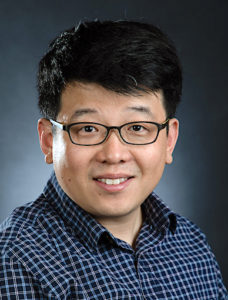Tagged: “forgiveness bibliotherapy”
Forgiveness Education for Students in Nursing Program Helps Reduce Anxiety and Depression
A research study published last month, utilizing Dr. Robert Enright’s forgiveness intervention model, showed that students in college nursing programs would benefit from a forgiveness intervention in the areas of self-care and forgiveness facilitation.
The nursing students, randomly assigned to either an experimental group or a no-contact control group, used Dr. Enright’s book 8 Keys to Forgiveness as the project’s treatment manual. After studying one chapter a week for 8 weeks, the students in the experimental group showed greater improvement in forgiveness compared to those in the control group from the pretest to the posttest which was maintained at the four-week follow-up. In addition, those in the experimental group showed statistically significant decreases in anxiety, depression, and fatigue from pre-testing to both post-testing and follow-up testing periods.
The study was conducted by a team of 8 researchers from the Liberty University School of Nursing (Lynchburg, VA) under the direction of Jichan J. Kim, Associate Professor of Psychology at Liberty. Dr. Kim has been the lead investigator on more than a dozen forgiveness-related studies over the past several years.
This latest study, The Efficacy of a Forgiveness Bibliotherapy: A Randomized Controlled Trial with Nursing Students, was published in the Journal of Holistic Nursing (JHN) on Jan. 10, 2022. JHN is a peer-reviewed quarterly journal with a focus on advancing the science and practice of holistic nursing and healthcare.
“The need for forgiveness education for nursing students has risen dramatically as responsibilities have broadened for nursing professionals,” according to Dr. Kim. “Our study positively demonstrated that the use of bibliotherapy can be a cost-effective way to promote the virtue of forgiveness for nursing students who are likely to be in need of exercising self-care and would have opportunities to facilitate forgiveness for their patients.”
Bibliotherapy, Dr. Kim explained, is a therapeutic approach that uses literature (in this case Dr. Enright’s 8 Keys to Forgiveness) to support good mental health. This study, he added, demonstrated not only the effects of forgiveness, as numerous studies have done in the past, but also the feasibility of using a forgiveness bibliotherapy that can be easily adopted into the existing nursing curriculum.
That same approach has been used by Dr. Enright, co-founder of the International Forgiveness Institute (IFI) and the man Time magazine calls “the forgiveness trailblazer,” in a slightly different format over the past two years. Dr. Enright has worked with Dr. Chontay Taylor Glenn, PhD, RN, PMHNP-BC, to enroll a total of eight University of Michigan-Flint nursing students in the IFI’s Forgiveness Therapy training course.
Dr. Glenn is Assistant Professor & Project Director of the Psychiatric Mental Health Nurse Practitioner Residency Program at UM-Flint. In addition to incorporating the IFI’s forgiveness training into the curricula for her nursing students, she also developed a program through which nine Flint-area community counselors completed the Forgiveness Therapy online continuing education course. Dr. Kim provided three hour-long training sessions by Zoom as part of that collaborative effort between Dr. Glenn, Dr. Enright, and himself.
The newly trained counselors in Flint are also undertaking an expanded role in their community, according to Dr. Glenn–providing forgiveness education classes and case coordination to Flint-area adolescents who have experienced adverse childhood experiences. The project is funded by a grant from the W.K. Kellogg Foundation in Battle Creek, MI.
About Dr. Kim
Jichan J. Kim is an Associate Professor of Psychology and the Director of the M.A. in Applied Psychology program at Liberty University, Lynchburg, VA. His research interests include the effects of interpersonal and intrapersonal forgiveness as well as the integration of psychology and Christianity.
Dr. Kim has degrees from the University of Wisconsin-Madison (M.S. & Ph.D.), Harvard University (Ed.M.), Gordon-Conwell Theological Seminary (M.Div. & M.A.), and City College of New York (B.A.). He also has extensive ministry experience in New York City, Boston, and Madison (WI), serving various age groups in Korean immigrant congregations.
Learn More:
- Nursing Students Research Report Abstract
- Bibliotherapy Defined
- Overview of the IFI’s Forgiveness Therapy Course




